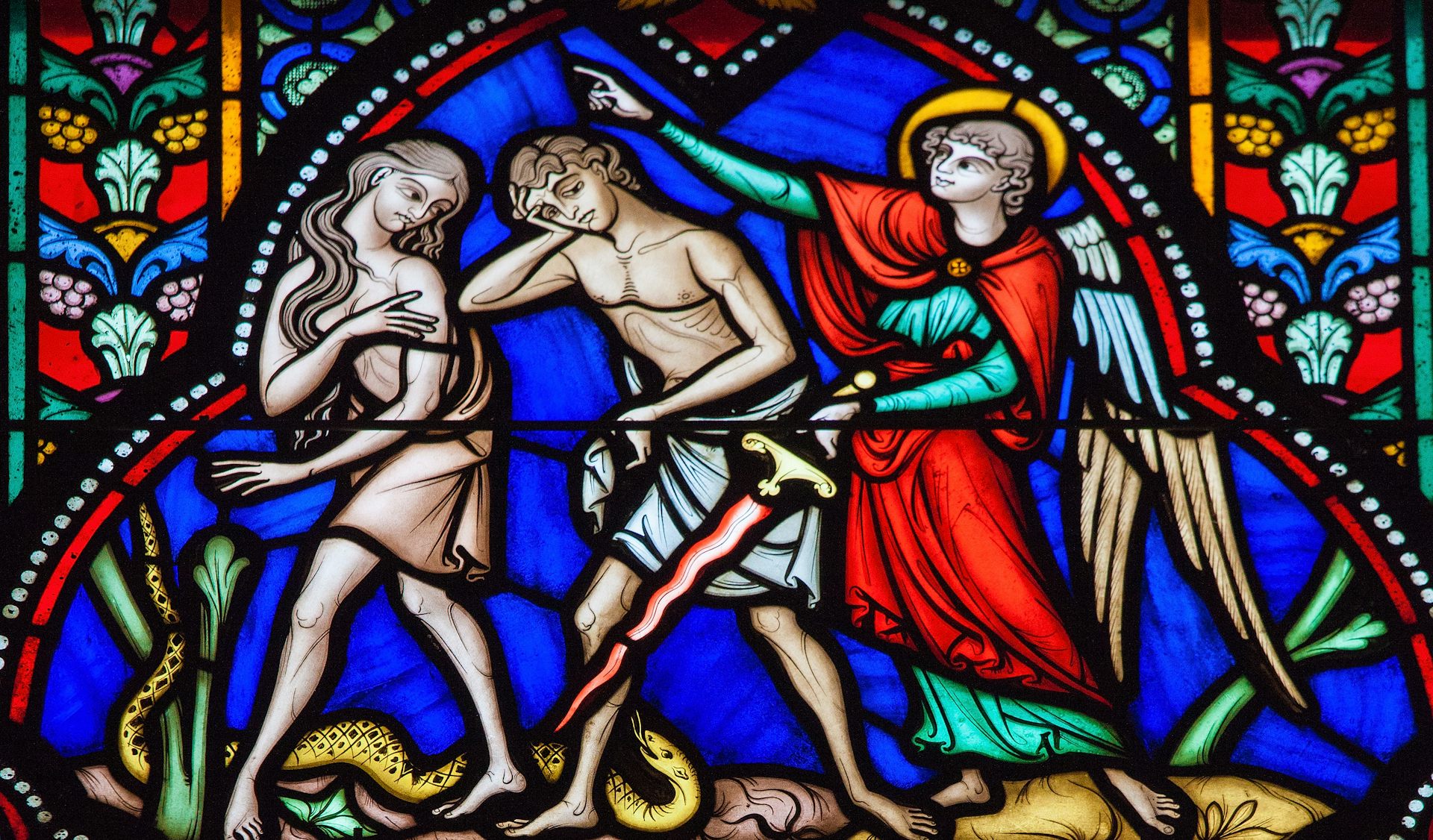Hypocrisy News
How Piety is Used to Self-Licence Exemptions For Religious Sex Workers and Their Clients
How Piety is Used to Self-Licence Exemptions For Religious Sex Workers and Their Clients
Uncovering the secret religious and spiritual lives of sex workers
The psychological phenomenon of self-licencing or awarding themselves exemptions from the standards they demand others live by, is a characteristic of the pious, and often the reason for the public display of it.
It's as though the pious see their piety as building up credit they can draw on later to provide themselves with a little relaxation of the rules without running the risk of adverse judgement later. Then, of course, there is the useful Christian notion of forgiveness through confession, in effect having your sin counter zeroed by confession and penance.
In this article from The Conversation, Daisy Matthews, a PhD candidate in Sociology, Nottingham Trent University, Nottingham, UK and Jane Pilcher, Associate Professor of Sociology, Nottingham Trent University, explore the extent to which piety is used by sex workers and their clients to free themselves from any feelings of guilt or responsibility for acts which are condemned as sinful by their respective religions. There is a noticeable flexibility of belief where arbitrary lines are drawn and, so long as they are not crossed, anything else is permitted within the religion.
The practices are not restricted to Christians of one denomination or another but extends to Muslims, Jews, and others.
The article, part of the Insight series, is reprinted under a Creative Commons license, reformatted for stylistic consistency. The original can be read here.

Uncovering the secret religious and spiritual lives of sex workers
Shutterstock.
Daisy Matthews, Nottingham Trent University and Jane Pilcher, Nottingham Trent University
Tanya* is telling me just how important her Methodist Christianity is to her. We’re chatting over a video call, and I can see Tanya’s living room in the background. This also happens to be her workspace because Tanya, who is 50, is a full-time phone and cam sex worker. For Tanya, earning her living through sex work does not conflict with her religious beliefs at all. Tanya tells me that she had a client who talked to her about his enjoyment of wearing women’s clothing. He confided in her because they both shared the same religious identity.
He [the client] started talking more and more … he said I listen … he told me he goes to church every Sunday and was a church elder and he opened up. I also said to him … that I used to go to Sunday school every week and so we connected … because I am not going OMG when he told me. And he asked me if I still go to chapel now, and I said no but I still pray and believe in God, and he said that’s nice.Tanya reassured her client that there was “no need to feel guilty”, that what they were doing wasn’t “wrong”. She even told him: “I bet there are other people in the church who do it”.
Tanya was one of 11 sex workers I spoke to who all had spiritual and religious beliefs. I wanted to discover how these two seemingly opposite life choices could interconnect and coexist. I discovered people like Tanya, who spoke to their clients about God and religion, but I also spoke to women who used religion as a kink to arouse their clients or as a tactic to earn more money or, in some cases, protect themselves when they felt threatened.
I found out that rather than being incompatible, religion and spirituality can create unique connections and meaningful experiences for both sex worker and client. Tanya’s story shows how sex work experiences are not one dimensional, and are not only about selling sex for money. They can hold multiple meanings. As the journalist Melissa Gira Grant suggests in her book, sex work is a role where social skills and empathy are regularly performed.

The Insights team generates long-form journalism derived from interdisciplinary research. The team is working with academics from different backgrounds who have been engaged in projects aimed at tackling societal and scientific challenges.
My PhD research attempts to shine a light on the realities of the everyday lives of religious sex workers, which include positive experiences as well as distressing ones. I spoke with sex workers who were Christian, Catholic, Muslim, Norse Pagan and spiritual. All the women were over the age of 18 and were consensual sex workers.
Religion, sin and ‘morality’
So, what do different religions say about sex work? Research by independent scholar Benedikta Fones, suggests that in the Hebrew Bible and the New Testament representations of sex workers are typically negative. That perhaps doesn’t come as too much of a surprise. The stereotypical “religious” view of sex before marriage is that it is immoral, so why should sex work be any different? Fones argues that these religious ideas, about sex work being “unacceptable”, then spread into wider culture.
Research shows that sex work is generally considered an immoral act within Christianity, Judaism and Islam.
That said, there are some religious organisations or charities that do provide essential support for some sex workers. But there are also “saviour charities”, whose existence gives further insight into the complex relationship between sex work and religion.

Adam and Eve expelled from the Garden of Eden on a stained glass window in the cathedral of Brussels, Belgium.
Credit: Shutterstock/Jorisvo
And it’s not just religious doctrines which find sex work to be immoral – some religious sex workers do too, as a research project in Thailand discovered in 2015. But the women I spoke with rejected that narrative of religious condemnation. For them, religion and sex work can co-exist and both were a meaningful part of their lives.
Using religion to earn more
One of my first discoveries was how some sex workers use religion to earn more money. One example of this was how one sex worker had decided to capitalise on her Muslim heritage to boost her “brand”.
Zahra and Islam
Zahra is a 26-year-old British Muslim. Zahra was inspired by other women who use the hijab when sex working. From this, she created her alter ego, where she wore the hijab when she made online sexual content and when working as an escort. She said:
On Twitter … I networked with this one girl, she wears a hijab, not in her real life but using it to make more money and mix it up and she is like earning 150k, she’s up there with celebrities and stuff and so, yeah I decided I would have an alter ego, my “hoejabi”, that’s what I called it and I made content wearing a head scarf and like that and I had jobs coming through from that.So Zahra utilised the hijab and, in her own words, “made a lot of money from it”.
However, this coexistence of identities – as sex worker and religious person – is not simple, and must be managed by a process of constant internal negotiation. Zahra spoke to me at length about the requests she has had from clients which she turned down, because to agree with them would have challenged her religious values and morals.
She added: “I have had clients go, ‘can you sit on the Qur’an and cum or can I bring a Qur’an and ride it whilst saying this and that’, and I say no. That is too extreme for me.”
So although Zahra uses her religion to earn more money by sexualising Islamic symbols like the hijab, she is still a Muslim woman. She believes in Allah in her private life. She set boundaries within her work to ensure that she doesn’t go against her own religious beliefs.
But sexualising religion in this way can come with risks. In 2015, the former porn actor Mia Khalifa starred in a porn film while she was wearing the hijab. She received death threats as a result and was strongly criticised by some people in Muslim communities. Some claimed she was letting down the Islamic faith (although Khalifa herself was raised Catholic).
But despite – or perhaps because of – the controversy around her film, Khalifa became one of the most searched-for stars on the adult movie site Porn Hub.
Being a Muslim and sex worker may be risky - but for Zahra, it was empowering and positive. And she is not alone. There is a Muslim group called Muslims for Full Decrim whose members are also current and former sex workers who support the decriminalisation of the sex industry. Clearly, religious communities like Islam are diverse and this is reflected in how people feel about their religion and sex work.
Maya, yoga and spirituality
Another sex worker I met used elements of her spiritual life to increase interest from clients. Maya, a 25-year-old British woman showed me her bedroom over a video-call. Maya, like Tanya, is a cam sex worker, so her bedroom is also her workspace. But Maya’s bedroom is also the space where she practises yoga. She told me that she performed yoga on camera for her clients:
Good spiritual link, customers have said they find it relaxing to watch. Yeah, I don’t know why I didn’t mention that! I think it’s even like, called a subculture … I sent a video of myself into the site proving I can do it [yoga], you add it to your list of specialities so people can find you for specifically doing that.For Maya, yoga can be relaxing and a way to connect with her spiritual identity. But it is also a way to make money and it shows how religion and spirituality are becoming more diverse and less bound by traditional religious rules and doctrines. Maya was managing her beliefs flexibly. This was also true for Zahra.

Woman practising yoga in a studio.
Credit: Shutterstock/Luna Vandoorne
Khan, a trans Norse Pagan
But there were other women I met who needed religion to help them belong. Khan, a 41-year-old transgender woman, was raised Christian but now has a Norse Pagan religious identity. She told me how she changed her religious path because she felt conflicted between her gender identity, sex work identity and, specifically, her Christian identity.
She said that being a transgender woman created challenges to being a Christian and that Christianity would not accept her occupation as an escort.
I don’t think there is a way to reconcile the sex work with Christianity.It is these kinds of religious ideas about the immorality of sex work that meant Khan looked for and found a religion – Norse Paganism – which better suited her feelings and identities. Norse Pagan practices are diverse and people engage with the religion differently. An introduction to Norse Paganism on spiritualityheath.com states that it “is an inclusive spiritual practice, open to all who are moved toward it”.
The inclusivity offered by this religion seems to enable people with diverse and marginalised identities to feel accepted within it – in other words, it is a religious community free from judgement. For Khan, it was a welcoming religion. It helped her to overcome the challenges she had experienced as a transgender woman sex worker within the Christian faith.
Khan’s story supports the idea that religious beliefs are becoming more fluid and that people are able to tailor religion to better align with their “self”.
But, as Tanya’s story showed, there are Christian sex workers who do not feel conflicted in the way that Khan did. Religious beliefs – even those within mainstream religions like Islam and Christianity – are diverse and one size does not fit all.
Enhancing sexual pleasure
Another topic I was keen to examine was whether sex workers themselves experience sexual pleasure while working. This point is seldom addressed. But according to a number of the women I interviewed, they not only enjoyed sex with some of their clients, but religion and spirituality sometimes increased that pleasure and led to more of a connection.
Amy and spiritual vibes
Take Amy, for example. Amy is a 23-year-old American porn actor who has a spiritual identity. Our interview lasted nearly three hours. She explained to me how being a sex worker and being spiritual were not at “odds with each other”. She described how they are two separate things within her life. However, she also told me that sometimes her sexual encounters (for example, when she is creating pornography) can be a spiritual experience.
Sex can still be spiritual for me … And even if you don’t have, like, a connection with the person and you’re not gonna see them again or don’t care about them, or whatever, you can still enjoy … the moment.Amy told me that sex could “turn her brain off” and “that’s kind of like a spiritual experience”. Amy’s spirituality concerns “high vibes”, which are positive qualities such as love, and “low vibes” associated with negative qualities such as hatred. So for Amy, although sex work and spirituality are separate, there was also a blurring of lines between them, and some sexual experiences when making porn gave her “high vibes”.
LRE, astrology
Another sex worker I spoke to said that the sex part of her work could become especially enjoyable when she and her client connected over a shared love of astrology and star signs.

Zodiac signs on ancient Torre dell'Orologio clock in St Mark’s Square, Venice, Italy.
Credit: Shutterstock/Viacheslav Lopatin
Oh, he was a Sagittarius [client]… we did bits and then halfway through he was like, what star sign are you? I was like, ‘you are my new favourite person ever’ … he was like laughing and smiling and I was like ‘no seriously, I love that you asked me that’ … and I thought … this is why there is such sexual chemistry.Although the stories of Amy and LRE have some things in common, their spiritual identities were present in their sex work in different ways. In Amy’s case, her spiritual identity was not necessarily known to the fellow porn actor she had sex with. But for LRE, her spiritual identity was known and openly discussed with her client.
Belief as a coping strategy
Despite the many empowering and sex-positive stories I heard, there was sometimes a reminder that not all sex worker experiences are positive.
Lilly, Christian Orthodox
Lilly is one such example. Lilly was a 25-year-old escort, originally from Romania. She is Christian Orthodox and lives in the UK. She told me how she prays in her head when she is with a client who makes her feel uncomfortable:
If I have a problem or think something is wrong with this guy, I start to pray in my head, and it helps me not to think because if they feel I am scared, they will take advantage. So, when I start to pray, I forget I am scared and go away from those feelings and so, he will be quiet as he doesn’t feel like this.Safety challenges are an occupational hazard for sex workers. It is important to say, though, that for Lilly at least, feeling unsafe with a client was not a regular occurrence.
Lilly told me that sex work provides her with greater opportunities to earn more compared to other jobs available to her. I did feel concerned that Lilly, at times, was made to feel scared by her clients. But it was also clear to me that, for Lilly, these negative experiences do not outweigh the positive benefits she says she gains from being an escort.
Decriminalisation
One way to keep sex workers like Lilly safer is to decriminalise the sex industry. Those who oppose decriminalisation seem to be under the misconception that all sex workers are coerced, trafficked or exploited. Although this is true for some, it is not true for most and the misconception that all sex workers are victims is itself, as research shows, a result of stigma and lack of knowledge about the industry.
It is also important to differentiate between criminalised, legalised and decriminalised sex industries. Criminalisation of the sex industry makes all sex work-related practices illegal. Legalisation of the sex industry is where sex work is legal under specific state defined conditions.

Protest in London in July 2018.
Credit: Shutterstock/Koca Vehbi
Decriminalisation is where sex work is stripped of regulations and sex workers can operate freely. I support the decriminalisation of the sex industry globally because it is under these conditions that sex workers can best protect themselves and it is the first step in abolishing stigma. Research has also shown it is the best strategy for harm reduction.
Stigma heightens risks
Although it is not the belief of all sex workers, the women I spoke to argued strongly for the decriminalisation of the sex industry. Stories told to me by Khan and LRE, who are both escorts, are cases in point.
Khan lives and works in a US state where escorting is illegal. So, if she has a violent client, she will tell staff and security at the hotel where she is working that she is on a date that has gone wrong.
… God forbid, something does happen, like there’s staffed or security and I will say I was on a date and this guy went crazy …Khan is forced to hide her sex work from staff when she is in potential danger due to fear of prosecution. LRE faces similar issues in the UK. She told me how she has to hide her income around her hotel room when she is escorting to reduce the likelihood of theft and violence.
… If you get money, put like £100 in the safe and then anything else, just stash it around the room …All the women I spoke to informed me they do not report violence from clients or thefts to the police. This is not surprising, given evidence that women, men and transgender sex workers are all at heightened risk of police sexual misconduct in comparison to non-sex workers.
Not ‘just’ sex workers
I think my interviews show that sex workers are not just sex workers – they have complex and multifaceted identities. You absolutely can be a sex worker and be religious or spiritual. But it is not necessarily easy to always get a balance. It is the result of constant and skilful identity management. The stories of women like Tanya, Maya, Zahra, LRE, Amy, Lilly and Khan underline how important it is to recognise the sheer diversity of people who work in this industry.
Although there are negative experiences in the sex industry, the women I spoke to, on the whole, felt empowered by their profession. They saw it as providing great opportunities for earning money and offering them positive experiences.
And, importantly, it didn’t get in the way of their religious and spiritual beliefs. As Zahra told me at the end of our discussion:
…I do believe in God and believe in Allah and in my private life. I believe in it.So whether it was Tanya consoling a church elder, or Zahra finding a way to utilise her Muslim faith, these women were opening up new discussions about what it means to be a sex worker.
All names have been changed to protect the identities of those involved.

- The artist formerly known as Camille – Prince’s lost album ‘comes out’
- ‘It’s like being in a warzone’ – A&E nurses open up about the emotional cost of working on the NHS frontline
- Living with MND: how a form of ‘acceptance therapy’ is helping me make one difficult choice at a time
Daisy Matthews, PhD candidate in Sociology, exploring the lives of religious and spiritual sex workers, Nottingham Trent University and Jane Pilcher, Associate Professor of Sociology, Nottingham Trent University
This article is reprinted from The Conversation under a Creative Commons license. Read the original article.


No comments:
Post a Comment
Obscene, threatening or obnoxious messages, preaching, abuse and spam will be removed, as will anything by known Internet trolls and stalkers, by known sock-puppet accounts and anything not connected with the post,
A claim made without evidence can be dismissed without evidence. Remember: your opinion is not an established fact unless corroborated.